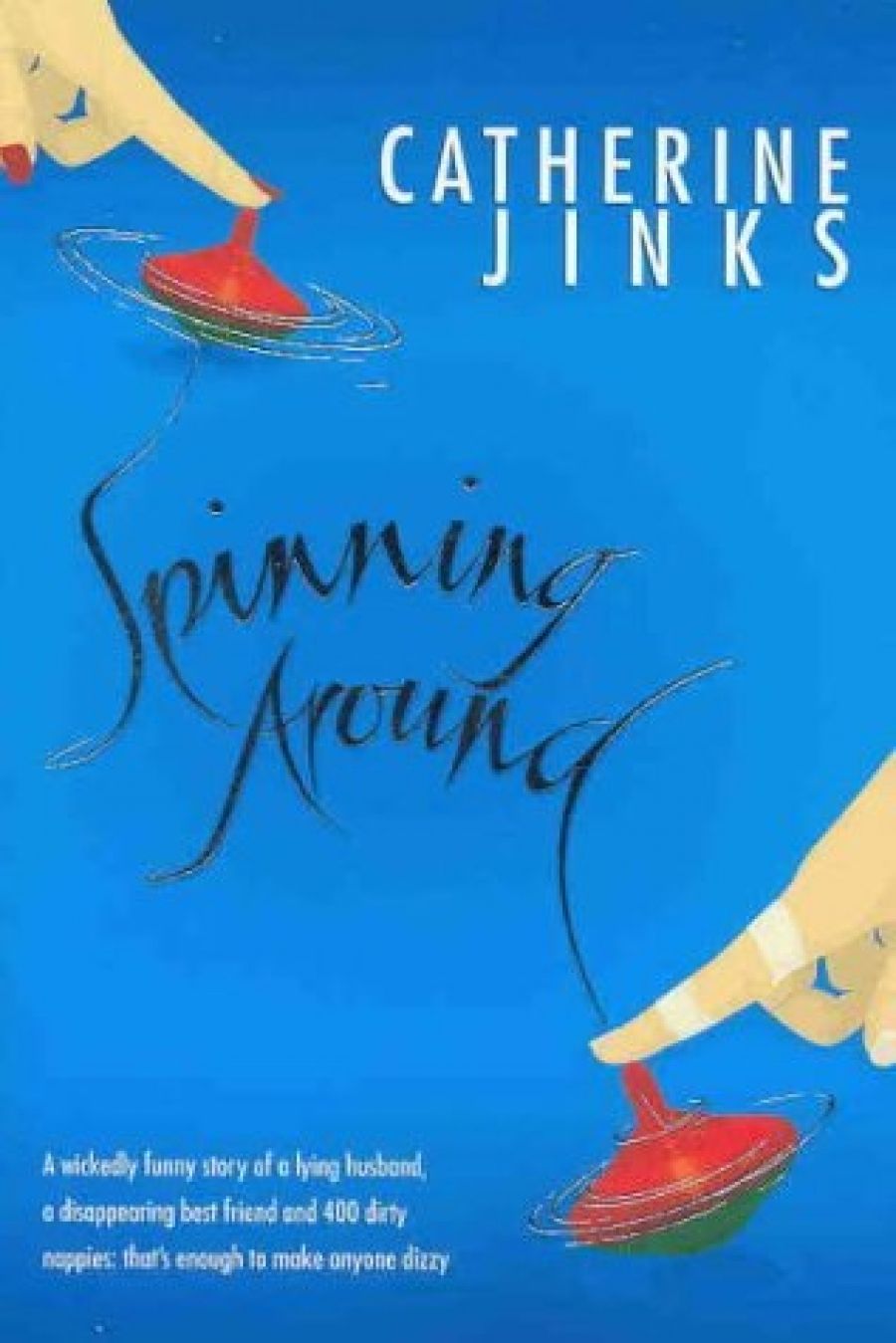
- Free Article: No
- Contents Category: Fiction
- Review Article: Yes
- Online Only: No
- Custom Highlight Text:
Spinning Around is reminiscent of Allison Pearson’s I Don’t Know How She Does It (2002), the story of Kate Reddy, a full-time fund manager who also juggles a husband, a nanny, and two young children. The voice of both novels is confessional and conversational. Both use existing brand names as descriptors, employ time as a structural device – Jinks uses days, Pearson, hours – and end with a quick summary of a brighter future illuminated by enlightening experiences. They also open with very similar sentences and sentiments (Jinks: ‘How did I ever get into this mess?’ Pearson: ‘How did I get here?’), and in each novel there is a daughter named Emily, a younger son and a helpful, slightly hopeless husband with less earning power than his wife. It’s hard to tell if this is evidence of the genre’s inherent features, the ineluctable truth of the situations, or a happy coincidence.
- Book 1 Title: Spinning Around
- Book 1 Biblio: Allen & Unwin, $21.95 pb, 246 pp
These cosmetic similarities invite comparison. Pearson’s novel is a bittersweet investigation of the life of a woman who is working full-time in a demanding position, while trying to maintain an idealised standard of motherliness at home. Jinks’s heroine, Helen Muzzatti, works part-time and looks after her children for the rest of week, so there is less recrimination, more exasperation. Jinks has a more developed cast. Matthew Muzzatti, Helen’s husband, is a rounded character, and their children are personalities, not just plot devices. Jinks’s heroine is more realistic and endearing about the demands of mothering. Where Kate Reddy is up at 1:30 a.m. trying to make bought mince pies look home-made, Helen is partial to such thoughts on mothering as, ‘frankly, there comes a time when you just don’t give a shit’. Helen is ‘a typical North Shore girl from Killara’, and Matthew, ‘a tattooed, dope-smoking, shaggy-haired musician from Newcastle’. They have two children, Emily and Jonah, and a house in Dulwich Hill, undergoing renovations. Helen knows she has ‘a beautiful family [and] a well-paid job that’s an absolute breeze’, but feels left out, overlooked, and cheated. She doesn’t believe she’s a great mother. She enjoys her job, but considers it a guilty pleasure, and her husband, once considered ‘so hip, so hot’, is now a lazy, selfish, annoying housemate.
Spinning Around begins on a Friday, with a visit from Helen’s friend Miriam, who reveals that she has seen Matthew snuggling up with another woman. What follows is a study of an average week in the life of the Muzzattis, interwoven with Helen’s investigations into Matthew’s alleged infidelity and her musings on family, marriage, and mothering.
The novel’s strengths are Jinks’s humour and her mastery of a wealth of convincing details. Helen has a dry, sharp voice; she is an intelligent, self-absorbed gossip and amusingly self-deprecating, which makes for an entertaining narrator. Through Helen, Jinks articulates many of the ambivalences and struggles of modern, middle-class motherhood. The book is loaded with those constant dramas and joys of bringing up children that most parents would relate to, and Jinks skilfully manages to work her specific, interesting characters through a recognisable, but unpredictable, scenario. Spinning Around is universal without being clichéd, familiar without being formulaic, typical without resorting to stereotypes.
While not wanting to discourage any potential readers, this novel will appeal most to those with an insider’s understanding of what it is to have ‘picnics … like three-day hikes … laundry like a full-time job, and evenings like tactical training exercises’. And it’s an ideal book for people living that dream: a straightforward narrative with enough chug in the plot to keep the pages turning, and enough humour and intelligence in the narrative voice to keep you focused – all while you rewind the Play School video, scrape cheese off the carpet, and explain why you can’t eat poo.


Comments powered by CComment